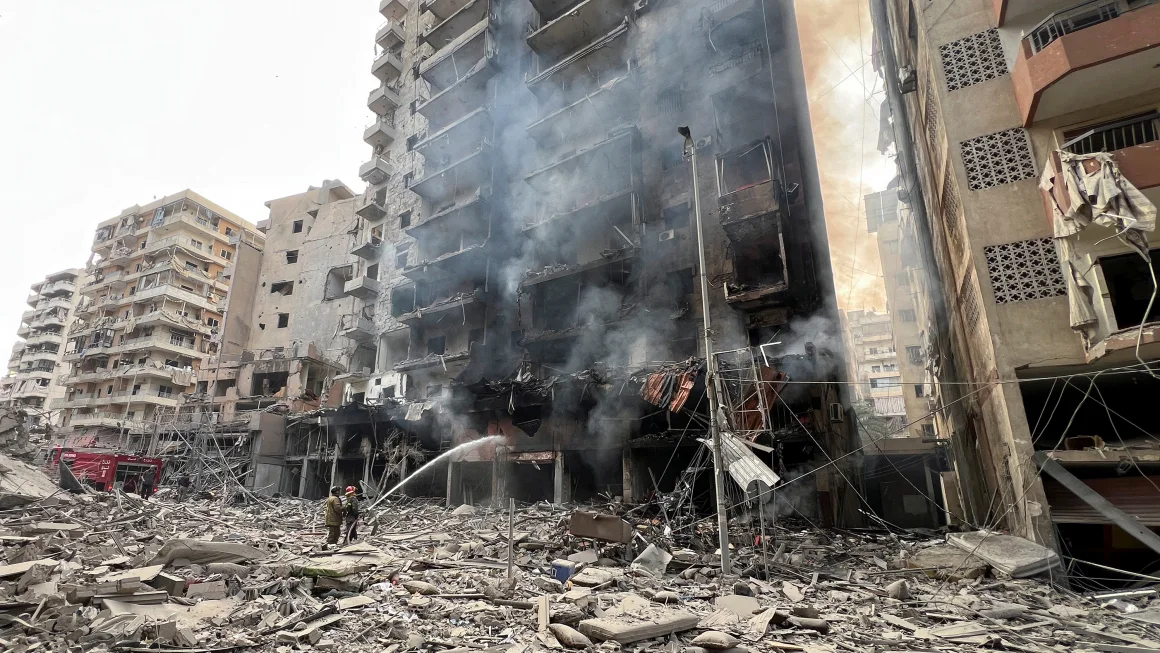CNN — Hamas has replied to a proposal aimed at the release of the remaining hostages in Gaza and a sustained cessation in fighting, Qatari Prime Minister Sheikh Mohammed bin Abdulrahman Al Thani and US Secretary of State Antony Blinken announced Tuesday.
“I would like to inform the media that we have received a reply from Hamas with regards to the general framework of the agreement with regard to hostages,” Al Thani said at a press conference alongside Blinken in Doha.
“The reply includes some comments, but in general it is positive. However, given the sensitivity of the circumstances, we will not tackle details,” Al Thani said.
“We are optimistic, and we have delivered the response to the Israeli party,” he said.
The United States is reviewing the response from Hamas “now,” Blinken said, adding that he would discuss it with Israeli government officials on Wednesday.
The framework of the proposal was agreed to by negotiators in Paris at the end of last month. CNN previously reported that it would call for a first phase of civilian hostage releases to take place over a six-week pause, with three Palestinian prisoners held by Israel released for each civilian hostage returned from Gaza. That ratio would be expected to go up for Israel Defense Forces soldiers and a longer pause is possible beyond the six weeks for the later phases.
Qatar, which serves as one of the key mediators in negotiations with Hamas, received the response from the group on Tuesday, and then relayed it to Blinken when he arrived in the Qatari capital that day, a source familiar told CNN. Blinken had arrived in Doha after Tuesday meetings in Egypt – another key interlocutor – and meetings Monday in Saudi Arabia.
After being told about Hamas’ proposal, Blinken’s response was positive, the source said.
A State Department official said Blinken was first informed about the Hamas counterproposal by the Qatari Emir, who told the top US diplomat that Hamas had responded an hour before the meeting. The Emir outlined it briefly and called it positive, and then the Qatari Prime Minister gave further details, the official told the traveling press. State Department officials briefed the White House.
President Joe Biden, who was briefed on the Hamas response, described it as “a little over the top” in remarks to the press later on Tuesday, but did not provide further details.
“We’re not sure where it is. There’s a continuing negotiation right now,” he said.
Officials close to the matter expected Hamas to reply with a counterproposal – rather than a straight rejection or acceptance – to the proposal given to them more than a week ago.
The source familiar described Hamas’ long-awaited counteroffer as “reasonable.” For a first phase, it does not include two of its most prominent and public demands: that Israeli soldiers leave Gaza or for a deal to end the war, the official said.
In a press statement Tuesday, Hamas said it “dealt with the proposal in a positive spirit, ensuring a comprehensive and complete ceasefire, ending the aggression against our people, ensuring relief, shelter, and reconstruction, lifting the siege on the Gaza Strip, and completing a prisoner exchange.” It did not offer specific details about its response.
Last week, senior Hamas leader Ismael Hanniyeh said in a statement that: “the review of the new proposal for a ceasefire is based on the basis that any negotiations lead to a complete end to the aggression.”
Israeli Prime Minister Benjamin Netanyahu’s office on Tuesday confirmed that Israel has received Hamas’ response. ”Hamas’s reply has been conveyed by the Qatari mediator to the Mossad,” the Prime Minister’s Office posted on X. “Its details are being thoroughly evaluated by the officials involved in the negotiations.”
The next hurdle is Israel’s response. Any push for a lasting ceasefire is likely to remain among the foremost sticking points in the longer-term negotiations, as Netanyahu has vowed to continue the offensive in Gaza until Hamas’ leaders have been killed and “complete victory” has been achieved.
“We will kill the Hamas leadership, therefore we must continue to act in all areas of the Gaza Strip. The war must not end before that. It will take time – months not years,” Netanyahu said Monday.
The sides have been unable to reach an agreement to release more hostages since one in November collapsed. That agreement resulted in a weeklong pause in fighting in exchange for the release of more than 100 hostages. Another deal to free the more than 100 who remain would be a major breakthrough at a time of huge tension in the Middle East as concerns grow about a wider regional conflict breaking out.
The top US diplomat on Tuesday reiterated that the proposal that was presented to Hamas was a “serious” one “that was aimed at not simply repeating the previous agreement, but expanding it.”
“There’s still a lot of work to be done, but we continue to believe that an agreement is possible, and indeed essential. And we will continue to work relentlessly to achieve it,” Blinken said at the news conference.
This story has been updated with additional reporting.
CNN’s Ibrahim Hazboun, and Kevin Liptak contributed to this report.
CLARIFICATION: This story has been updated to clarify details about Hamas’ counteroffer.




